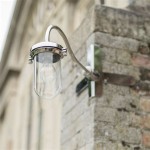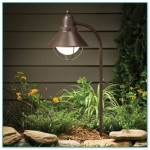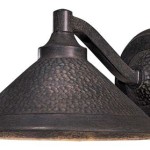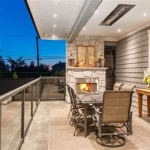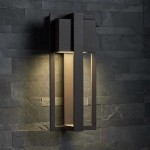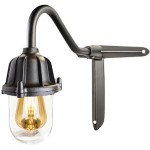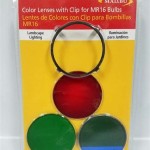Illuminating the Great Outdoors: Essential Aspects of Outdoor Area Lighting Design
Outdoor lighting is not merely about illuminating your property after dark. It serves a multitude of purposes, enhancing safety, security, ambiance, and the overall aesthetics of your outdoor spaces. Designing an effective outdoor lighting scheme requires careful consideration of several key aspects.
Purpose and Functionality
Determine the primary purpose of your outdoor lighting. Is it for safety and security, to illuminate pathways and entrances? Or is it to create a warm and inviting ambiance for entertaining? Different purposes require different types of lighting fixtures and placement.
Types of Lighting
There are various types of outdoor lighting fixtures available, each with its unique purpose and style. Some common types include floodlights for general illumination, spotlights for highlighting specific features, path lights for guiding walkways, and wall lanterns for decorative purposes.
Light Placement and Angles
The placement of lighting fixtures is crucial for achieving optimal illumination and ambiance. Consider the height, spacing, and direction of the light to avoid glare and ensure even distribution. Uplighting can create dramatic effects, while downlighting provides practical illumination.
Color Temperature and Beam Spread
Color temperature refers to the warmth or coolness of the light emitted. Warm white or amber lights create a cozy and inviting atmosphere, while cool white lights provide brighter and more functional illumination. Beam spread determines the width of the light beam, with narrow beams creating focused illumination and wider beams covering larger areas.
Lumens and Brightness
Lumens measure the amount of light output. Determine the appropriate lumens for your space, considering factors such as the size of the area, desired brightness, and the placement of fixtures. Avoid excessive brightness that can create glare or overwhelm the surroundings.
Energy Efficiency and Control
Choose energy-efficient lighting fixtures to minimize energy consumption. Consider using LED lights, which offer longevity, high efficiency, and color consistency. Control systems allow you to adjust light levels, create different scenes, and automate lighting schedules for convenience and energy optimization.
Safety and Security
Outdoor lighting plays a vital role in ensuring safety and security. Install motion-activated lights to deter potential intruders and illuminate dark areas. Ensure proper placement and brightness to minimize shadows and create a sense of visibility throughout your property.
Maintenance and Aesthetics
Regular maintenance is essential to keep your outdoor lighting system functioning optimally. Clean fixtures, replace bulbs, and check for any damage or loose connections. Consider the aesthetics of your lighting fixtures as they contribute to the overall visual appeal of your outdoor spaces.

Lighting For An Outdoor Living Space Flip The Switch

Lighting Design Considerations For Outdoor Entertaining
Outdoor Lighting Ideas 10 Designs Architecture Design

13 Outdoor Lighting Tips For A Safe And Inviting Landscape

Outdoor Landscape Lighting Design Tips Ideas Environmental Designs

How To Choose A Landscape Lighting Design That Fits Your Home

A Guide To Outdoor Lighting Easy Follow Tips Make The Most Of Your Garden

Get More From Your Home With These Outdoor Deck Lighting Ideas Borst Landscape Design

Outdoor Lighting Design Oclights

Design Guide For Your Home S Outdoor Lighting
